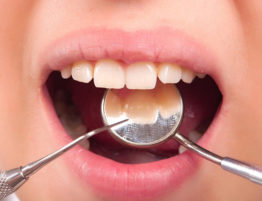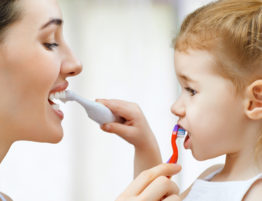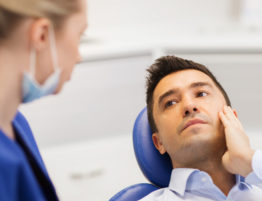
While you might be used to rinsing your mouth after brushing to remove plaque, mouth rinses have other uses too. They are used to freshen breath, prevent tooth decay, prevent gingivitis, or reduce tartar formation in the teeth. Most of them are available without a prescription.
Many contain alcohol, cleansing agents, flavouring agents, colouring agents, and other active chemicals depending on the type of mouth rinse – including anti-microbial agents, and flourides.
You get them in two different types – cosmetic and therapeutic.
What’s the Difference?
Cosmetic mouth rinse does not kill bacteria that cause bad breath. It just helps you get rid of your breath temporarily. On the other hand, a therapeutic mouthwash deals with the causes of bad breath. It kills the unhealthy bacteria in your mouth and helps control tooth decay, plague, gingivitis, tartar, and all other dental problems.
Therapeutic mouth rinse needs to be used as prescribed by your dentist. Your dentist may advise you to use a certain type of mouth rinse depending on your oral hygiene requirements. It helps reduce the debris on your gums and teeth and improve your oral hygiene.
Can Mouthrinses Work By Itself?
However, it should not be mistaken as a substitute for brushing and floss. It can be used as an additional measure for oral hygiene. Mouthrinse effects do not last for long, even in terms of bad breath control. Your saliva and the bacteria it contains works against your mouthrinse – a reason the effects die out after a few hours.
The best way to use them is after brushing – to get the best results.
What Should You Be Careful About?
Certain mouth rinses like the fluoride mouth rinse should not be used by kids below the age of six, as they have a risk of swallowing it. While buying a mouth rinse, you should make sure to look for the ADA seal. The ADA seal signifies that it is verified by the American Dental Academy.
Are Mouthwashes Safe?
Not all mouth rinses are healthy. On the contrary, they can be harmful if you do not use them well. Too much alcohol causes a dry mouth and ironically, is the cause of bad breath. Some chemicals can stain your teeth and cause a burning sensation.
Chlorhexidine is not recommended for permanent use and should not be swallowed. It can alter the sense of your taste. Hence, make sure you use the right amount of this mouth rinse and keep it away from your kids.
Many people complain that mouth rinses sting and are difficult to use. Hence, they just swish it around in their mouth for 2-3 seconds and spit it out. This will not do you any good. Experts say your mouth needs to have contact with the mouth rinse for at least 30 seconds, and it is important to use it exactly as instructed by the manufacturer.
To conclude, use mouth rinses for improving oral hygiene – however, they cannot replace the conventional methods, and if not used the right way, can cause counter effects. So, make sure you use your mouth rinse the right way.




